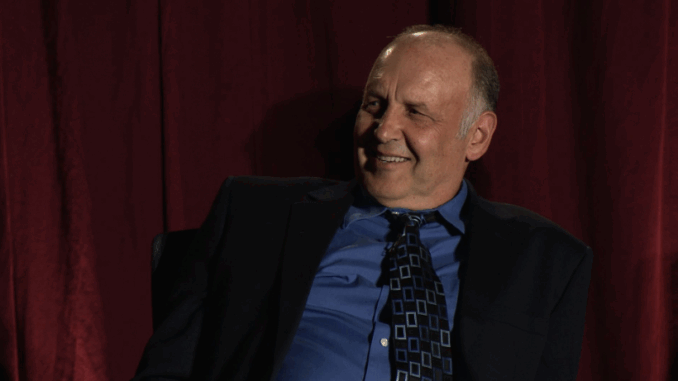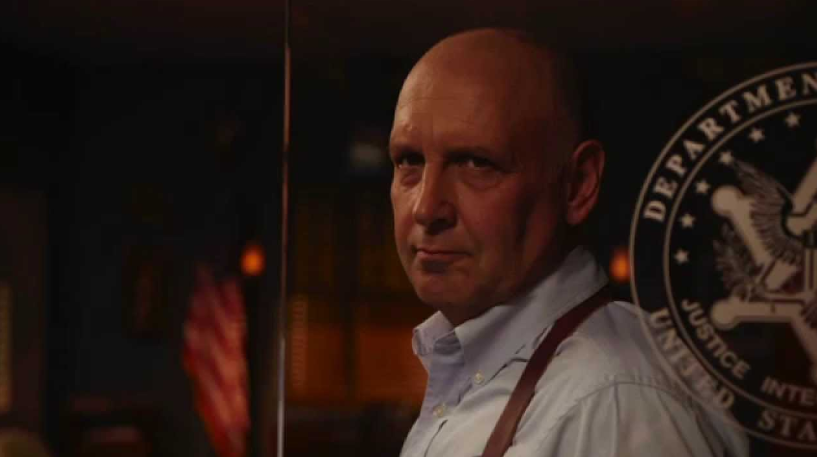
The Threat Returns to Whistle Stop
One of the film’s most suspenseful and morally complex storylines culminates in the mysterious disappearance of Frank Bennett, Ruth’s abusive ex-husband. For much of Fried Green Tomatoes, Frank remains a shadow—an ever-present danger lurking behind Ruth’s gentle demeanor. Though he is off-screen for most of the story, his actions reverberate through Ruth’s life like aftershocks from a long-forgotten earthquake.
When Frank unexpectedly returns to Whistle Stop to reclaim his son—whom Ruth has been raising with Idgie—it sends a jolt of fear through the entire community. But what follows is not the response of a town frightened into submission. It is something else entirely: quiet, coordinated resistance.
An Unseen Crime, A Collective Silence
Frank’s disappearance is never explicitly shown on-screen, and that’s a deliberate choice by the filmmakers. Instead, we learn the details through innuendo, gossip, and a future murder trial in which Idgie and Big George are falsely accused.
The scene is masterful in its restraint. One moment Frank is menacing and demanding custody. The next, he’s gone—without a trace. The ambiguity creates tension, but more importantly, it invites the audience to consider a deeper question: What does justice look like when the legal system fails the vulnerable?
Ruth’s life had already been ruined once by Frank’s violence. The courts, the church, and society all turned a blind eye. In Whistle Stop, however, justice takes on a new form—one not governed by the law, but by love and loyalty.

Sipsey’s Act of Maternal Courage
The eventual revelation that Sipsey killed Frank to protect the child is one of the most powerful moments in the film. Played with quiet dignity by Cicely Tyson, Sipsey is often viewed as the matronly cook and caretaker. But in this moment, she becomes something else entirely: an avenging angel.
Her action is not one of hatred or vengeance—it is instinctual protection. When Frank threatens the safety of Ruth and her son, Sipsey does what countless legal systems failed to do: she stops him. In doing so, she reclaims power in a world where Black women were rarely given voice, much less agency.
The act is carried out in silence. Sipsey doesn’t speak of it. She doesn’t demand recognition. Her justice is quiet, deliberate, and absolute.
A Cover-Up Rooted in Loyalty
What follows is a cover-up that involves Idgie, Big George, and the entire Whistle Stop community. The decision to dispose of Frank’s body and bury the truth is not taken lightly—but neither is it questioned. They all know what Frank represented, and they understand that justice sometimes happens outside the courtroom.
This cover-up is not about self-preservation; it’s about protection. They are protecting Ruth, Sipsey, and the child. They are preserving a fragile peace. And they are sending a message: in Whistle Stop, no one harms one of our own and walks away.
The scene takes on added weight when you consider the racial dynamics of the 1930s South. Big George, a Black man, is falsely accused of Frank’s murder and faces possible execution. The risk he takes to protect Sipsey—and the risk the entire community takes in standing by him—adds layers of complexity to this already loaded moment.
The Barbecue That Became Legend
Perhaps the darkest humor in the film comes when the town speculates that Frank was served at a barbecue. It’s a grotesque rumor, fed by desperation and prejudice, but the film cleverly plays with it.
The scene where the investigators unknowingly eat ribs while questioning Idgie and Sipsey is laced with irony. The audience, now aware of the truth, watches as the law literally consumes its own incompetence. The meat may not be Frank—but the joke, and the horror, lingers.
This moment is classic Southern Gothic: macabre, satirical, and biting. It critiques not only justice systems but the absurdity of polite society pretending that violence does not exist within its own bounds.
The Trial: Truth on Trial, Not the Accused
The courtroom sequence that follows is not about proving innocence in a traditional sense. It’s about exposing the futility of laws built to protect abusers while criminalizing those who resist them. Idgie, ever the iconoclast, handles her questioning with sharp wit and cool composure. She refuses to be cowed.
When the preacher is called to testify and lies to protect her, it shows the extent to which the community has chosen its side—not with the law, but with what is right.
The verdict of “not guilty” is both a relief and a vindication. But it is not triumphal. The audience knows that justice was not served in court. It had already been served in the kitchen of the Whistle Stop Café.
Justice Redefined Through Community
In most narratives, murder and cover-up would be treated as moral failing. In Fried Green Tomatoes, it’s an act of communal protection. The film doesn’t glorify the killing, but it doesn’t condemn it either. It presents it as the inevitable outcome when good people are cornered and legal avenues fail.
Justice, in this film, is not a gavel striking wood—it’s a mother’s hand shielding a child. It’s a friend standing guard over another’s safety. It’s a community deciding, We will not let this happen again.
Themes of Power, Resistance, and Survival
Frank Bennett’s disappearance becomes more than a plot device—it’s a microcosm of the film’s broader themes. It speaks to the quiet resistance women must often mount against a violent world. It highlights the invisible labor of Black women like Sipsey, who are often the real protectors of the family. And it challenges the viewer to reconsider where justice truly lies.
The absence of Frank, ultimately, creates space for life to flourish. Ruth is free to raise her son in peace. Idgie continues to run the café without fear. Sipsey remains unpunished, protected by love and silence.
It is a story not about erasing crime, but about rewriting the meaning of justice.
Conclusion: A Vanishing That Echoes with Meaning
Frank Bennett’s disappearance is not just a mystery—it’s a metaphor. It reminds us that the worst violence often hides behind charm and legality, and that true justice may come from those with the least power, the least recognition, and the greatest love.
In Whistle Stop, the law never found Frank. But Ruth found freedom. Sipsey found power. And the audience found a powerful truth: sometimes justice doesn’t wear a badge—it wears an apron.
